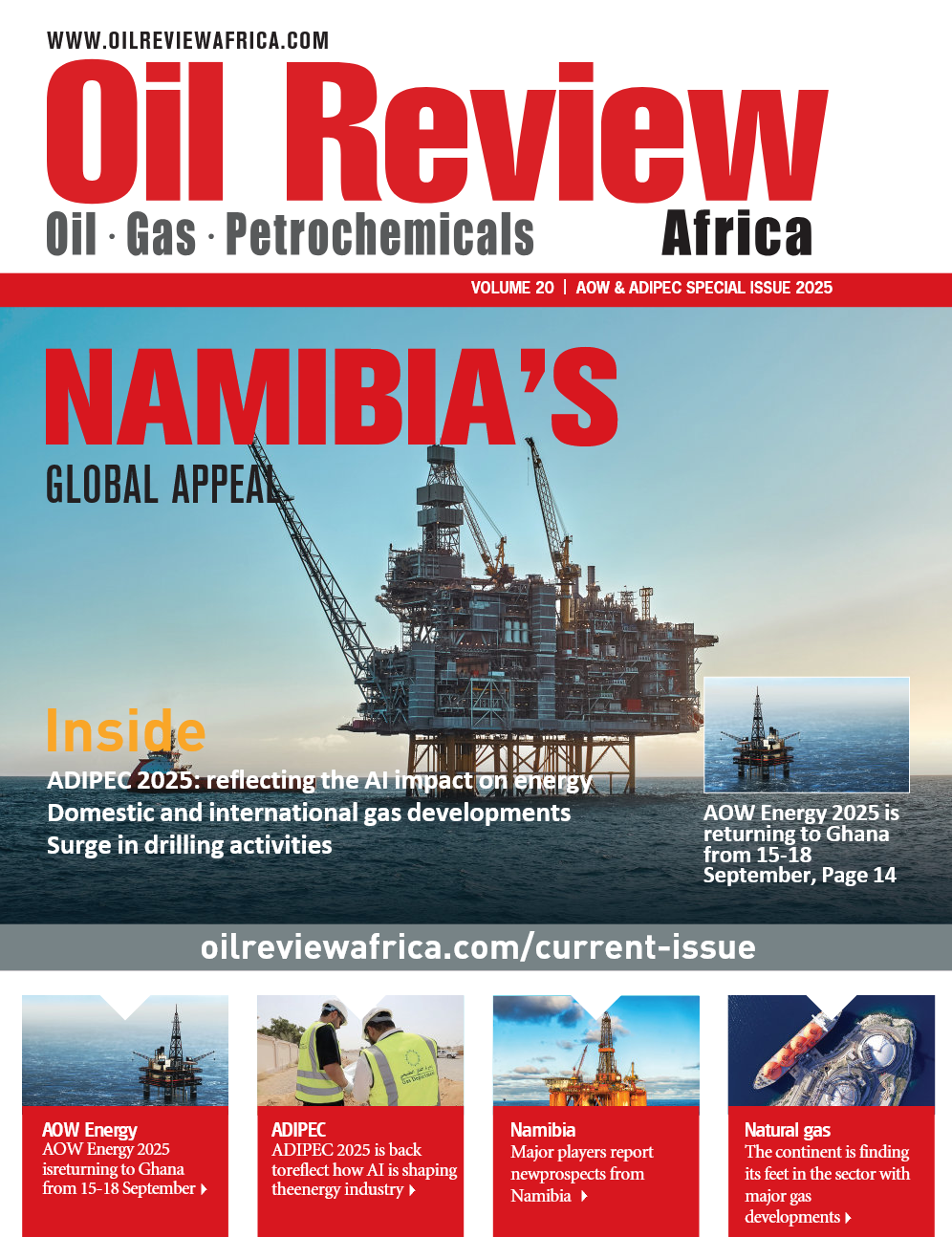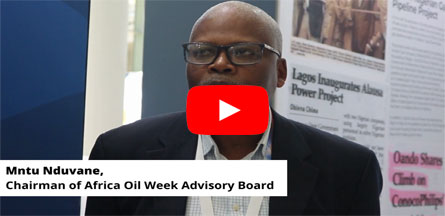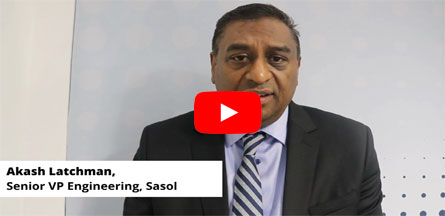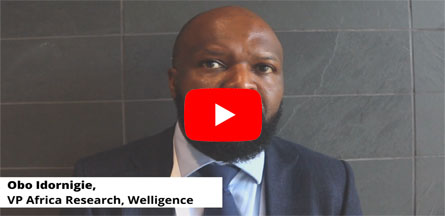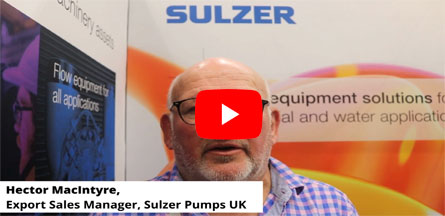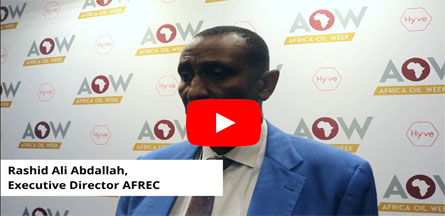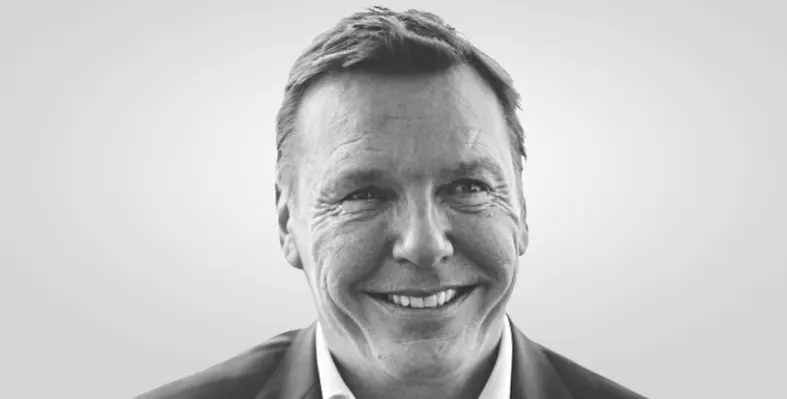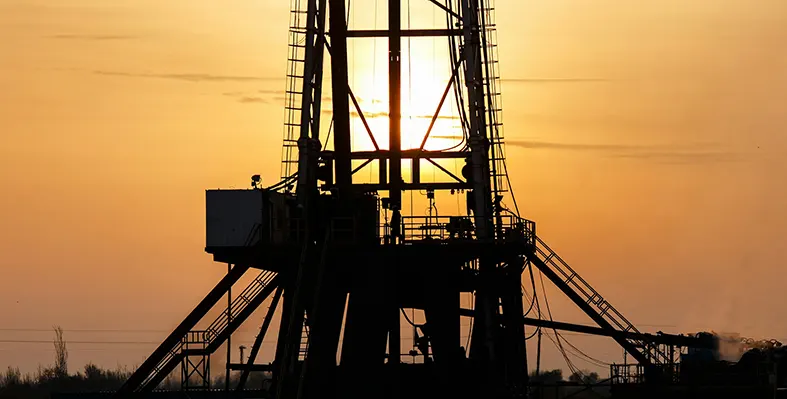In The Spotlight
In a major milestone for Chevron, the South N’dola Platform in Angola has delivered first oil, in a little over two years after construction on the platform began
Situated in Block 0, the South N’dola Platform is an abundant offshore reservoir in the country, accounting for 12% of its daily energy output.
“Underpinned by the prolific Block 0, safely achieving first oil at South N’dola is the latest example of Chevron’s efforts to maximise production from our existing offshore assets in Angola,” said Brent Gros, president of Chevron Offshore Business.
Existing infrastructure was leveraged to push for a sustainable, efficient and cost-effective development of the South N’dola field. With a field-to-production-facility tieback connected to the nearby Mafumeira facility, the processed oil and gas are directly pumped to the terminal for export. This eliminates the need for separate oil and gas processing equipment at South N’dola.
The South N’dola success marks a new chapter in Chevron’s 70-year long history in Angola. It operates two offshore tracts in Angola, Block 0 and deepwater Block 14, through a wholly owned subsidiary, Cabinda Gulf Oil Co. Ltd.
During its construction phase, South N’dola was expected to create more than 800 local jobs, and now that it is producing, it will deliver oil and gas to local Angolan plants.
“Chevron and the Angolan government have worked together for more than 70 years to develop the nation’s thriving energy industry—a fantastic example of how people and partnerships power progress,” said Gros.
Energy data and intelligence provider, TGS, has tapped offshore Mauritania and the wider West African Atlantic Margin for a large-scale multi-client 3D seismic project called the Mauritania MegaSurvey
With this initiative, TGS has secured more than 100,000 contiguous square kilometers of modern seismic data, which will add to its existing offshore Mauritania multi-client library. Strategically positioned for extension and integration, the move will allow TGS to give operators easy and one-stop access across the offshore of Mauritania, making possible the regional interpretation of the full source to sink from nearshore to the ultradeep.
For an informed portfolio decision-making, operators can interpret complex regional-scale seismic with continuity across multiple exploration plays, simplifying robust basin screening and prospect maturation. The MegaSurvey's harmonised 3D seismic dataset over a large contiguous area eliminates uncertainties by ensuring confident geological interpretation backed by the clarity of structural and stratigraphic frameworks. Companies can leverage the survey for de-risking acreage evaluation before going ahead with drilling or licensing decisions.
TGS’ interests in the Mauritanian offshore is supported by the Mauritanian Ministry as its advanced datasets make the region attractive for exploration investment opportunities.
David Hajovsky, executive vice president of Multi-Client at TGS, said, “The Mauritania MegaSurvey delivers strategic regional value for our customers. By integrating with broader West African subsurface frameworks, the survey provides deeper insight into basin architecture and petroleum systems along the Atlantic Margin. This regional perspective enables operators to assess Mauritania in the context of neighboring proven and emerging basins, supporting play fairway analysis and a more robust understanding of cross-border geological trends.”
The Mauritania MegaSurvey further strengthens TGS’ multi-client leadership offshore West Africa and complements the company’s extensive portfolio of 2D seismic, 3D seismic, and well data across the region.
An indigenous integrated energy company from Africa, Heirs Energies has acquired Maurel & Prom SA's entire 20.07% equity stakes in Seplat Energy Plc at a price of GBP3.05 pence per share, adding to a transaction worth approximately US$500mn
The acquisition aligns with Heirs Energies’ long-term strategy to strengthen indigenous participation in strategic assets and accelerate sustainable energy development and security for Nigeria and Africa.
Commenting on the transaction, Tony Elumelu, Chairman of Heirs Energies, said, “This acquisition reflects our strong belief in Africa’s ability to own, develop, and responsibly manage its strategic resources. It is a long-term investment in Nigeria’s and Africa’s energy future, and aligns with our mission to drive energy security, industrialisation and shared prosperity. Seplat Energy has built a resilient, well-governed platform with compelling long term prospects, and we are pleased to support its continued growth and value creation for all stakeholders.”
This landmark achievement was supported by two leading African financial institutions—Afreximbank and AFC—further demonstrating Africa’s capacity to finance its own deals.
Shell is considering an agreement with Chevron, whereby the former might acquire stakes in two undeveloped offshore blocks in ultra-deep waters offshore Angola
The Angolan administration's increasing focus on making regulatory reforms to advance a investors-friendly energy sector is bearing fruit as European oil majors are willing to spend billions in sub-Saharan Africa's second-largest crude oil producer after Nigeria. The country aims to maintain production levels above 1 million barrels per day.
“We have signed a farm-in agreement with Cabinda Gulf Oil Company Ltd - a subsidiary of Chevron - to obtain a 35% interest in Block 49 and 50 offshore Angola. The deal has received governmental approval and is pending final legal requirements," Shell said in a statement to Reuters.
This was also confirmed by Chevron as the partners await relevant regulatory approvals.
"New exploration, such as in Angola, is important to sustaining production into the 2030s," said Shell, which aims to boost gas production by 1% through 2030 while maintaining a steady oil output.
Angola is ready for investors as it is set to open a licensing round this year, supported by valuable geological insights from Viridien. The earth data company has recently announced a multi-client seismic reimaging programme over Angola’s highly prospective offshore Block 22.
The 4,300 sq km high-end data set will bring valuable insight into underexplored structures along the Atlantic Hinge zone, following the same trend as the proven Cameia and Golfinho fields.
As Angola gears up for its upcoming licensing round, Viridien has announced a new multi-client seismic reimaging programme over Angola’s highly prospective offshore Block 22
The 4,300 sq km high-end data set will bring valuable insight into underexplored structures along the Atlantic Hinge zone, following the same trend as the proven Cameia and Golfinho fields. Fast-track results are scheduled for delivery in Q1 2026 and final products in Q3/Q4 2026.
The Block 22 data set will be reimaged by using Viridien's latest proven proprietary technologies, including time-lag FWI, Q-FWI, Q-Kirchhoff and advanced deghosting and demultiple. This data will complement its 2,900 sq km of data over nearby block 20/11, giving operators access to a combined regional coverage of over 7,200 sq km of ultramodern broadband PSDM data to conduct regional pre-salt and post-salt play evaluation in the Kwanza Basin.
Dechun Lin, Head of Earth Data, Viridien, said, “Viridien is delighted to continue its strong relationship with Angola's national energy agency, ANPG (Agência Nacional de Petróleo, Gás e Biocombustíveis), and longstanding presence in Angola by committing to this new reimaging project which will support their important upcoming licensing round. We have the most modern 3D broadband seismic data available offshore Angola and will continue to generate value from it to provide critical support for industry decision-making and help to increase exploration success.”
Nigeria's HI gas field development will be supported by Halliburton by the way of an integrated drilling services contract for Shell Nigeria Exploration and Production Company (SNEPCo), in collaboration with Sunlink Energies
The HI gas field development, which is part of OML 144, will see Halliburton's services for advancing feed gas supply to the Nigeria LNG Train 7 facility.
"This contract reflects our dedication to deliver integrated solutions that improve performance and efficiency in offshore environments. The company will deploy technologies integrated with LOGIX automation and remote operations to help improve drilling precision, efficiency, and safety in offshore operations. Our collaboration with SNEPCo and Sunlink Energies advances the HI gas field and contributes to the future of the energy industry in Nigeria," said Shannon Slocum, president, Eastern Hemisphere at Halliburton.
Halliburton’s project management team will support the drilling execution and provide integrated services to deliver end-to-end solutions. The company's advanced technology solutions combined with its strong presence in Nigeria will advance the HI Project’s operational and production goals.
Middle East-based natural gas company, Dana Gas, has made a significant gas discovery following the drilling of the North El-Basant 1 exploratory well in Egypt’s onshore Nile Delta
As the company conducted initial analysis, the well indicated the presence of an estimated reserves of 15-25 bn cu/ft of gas. This encourages production expectations to exceed 8 mn cu/ft per day once the well is connected to the national network.
The promising results come from the fourth of the 11 development and exploration wells under Dana's US$100mn investment programme to support domestic gas production, increase reserves and meet growing energy demand. This programme has been deseigned to boost long-term production, accumulating approximately 80 bn cu/ft in recoverable gas reserves for vast coverage.
The company is now preparing to spud the fifth well in the programme, the Daffodil exploration well, in January 2026.
On the other hand, three wells were recompleted earlier this year, adding 9 mn standard cu/ft per day of production. Drilling and recompletion programmes are adding approximately 30 mn standard cu/ft per day of new production.
Richard Hall, CEO, Dana Gas, said, “The latest drilling success reinforces the value of our investment programme in Egypt and highlights the significant remaining potential within the Nile Delta. The North El Basant-6 result builds on the momentum of our earlier wells and supports our efforts to increase domestic gas supply and reserves. By increasing local gas production, the programme will help reduce Egypt’s reliance on imported LNG and fuel oil and is expected to generate more than one billion dollars in savings for the national economy over time.
“Our agreement with EGAS has enabled us to secure additional acreage under improved fiscal terms and to accelerate this new phase of drilling activity. We appreciate the strong cooperation from EGAS and the Ministry, and we remain committed to delivering the majority of our planned programme next year. Regular and timely payments from our partners are crucial to sustaining our investment programme in Egypt.”
China Zambia Petrochemical Corporation will push ahead with its US$1.1bn crude oil refinery project in Ndola as it has received the Investment License from the Zambia Development Agency
A Special Purpose Vehicle jointly established by the Industrial Development Corporation and Fujian Xiang Xin Corporation, China Zambia Petrochemical Corporation will advance the refinery project as a significant driver of employment generation and economic stability in the region, making a positive difference for the rapidly evolving Ndola Industrial Zone. During the construction phase alone, the refinery will create more than 2,200 jobs. Once operational, it will sustain more than 600 direct and over 2,000 indirect jobs, with comprehensive skills-transfer and certified training programmes designed to build a highly capable local workforce with expertise in advanced petrochemical operations. This will solidify Zambia's energy security and stabilise fuel supply as the country will not have to rely as hevily on the import of refined petroleum products.
Set to begin operations starting next year, the refinery is expected to process 3 mn tonnes of crude oil annually. This staggering quantity will not only surpass Zambia's national fuel demand but also easily cover regional export markets.
An integrated energy complex, the refinery will gear Zambia's downstream growth, ranging from LPG bottling and bitumen production to lubricants blending. Additional spill over investments are anticipated in storage infrastructure, rail upgrades, and feedstock supply for manufacturing plastics, fertilisers, synthetic materials, and asphalt. Small and medium enterprises (SMEs) are expected to benefit significantly through opportunities in logistics, maintenance, catering, and specialised support services.
"Today's handover of the Investment License marks a decisive shift from commitment to execution. This project is a cornerstone of our industrialisation strategy and a timely response to the country's need for affordable, reliable, and locally produced energy. Through CZPC, we are driving a transformative venture that will create jobs, enhance national self-sufficiency, and support long-term economic growth," said IDC CEO Mr Cornwell Muleya.
"FJXX is honoured to advance this project into its implementation phase in partnership with the Government of Zambia through IDC. With more than two decades of Industrial experience, we are committed to deploying advanced engineering technologies that will deliver a world-class refinery for the benefit of the Zambian people and the broader region," said Mr Huang Tieming, Chairperson of Fujian Xiang Xin Corporation (FJXX).
ADIPEC 2025 will take place in Abu Dhabi, UAE, from 3-6 November 2025, with an expanded conference and exhibition programme aimed at addressing the challenges facing the global energy sector
The event will focus on two critical imperatives: building resilience in the energy system and scaling transformative solutions to accelerate global progress.
The theme for ADIPEC 2025, "Energy. Intelligence. Impact.", underscores the need for secure energy to drive inclusive growth, the intelligence to navigate the complexities of today's energy landscape, and the impact that translates vision into tangible progress for markets, people, and the planet. Over the course of four days, the event will explore four key themes, from new energy technologies and geopolitics to digital transformation and building a resilient, future-ready energy system.
This year, the ADIPEC conferences have been streamlined into two comprehensive programmes: the Strategic Conference and the Technical Conference. The event will feature over 380 sessions, with more than 1,800 speakers, including ministers, CEOs, academics, industry experts, and youth leaders. The aim is to turn dialogue into action by showcasing solutions and catalysing collaborations that drive real, measurable impact across the energy sector. The platform will promote intelligent choices, focusing on leveraging all viable energy sources and technologies to build sustainable systems that can deliver energy to more people, at lower cost, and with reduced carbon emissions.
The ADIPEC 2025 Exhibition will span 17 halls and host more than 2,250 exhibitors from across the global energy ecosystem, including 54 National Oil Companies (NOCs), International Oil Companies (IOCs), National Energy Companies (NECs), and International Energy Companies (IECs). It will also feature 30 dedicated country pavilions and four specialised industry zones focused on decarbonisation, digitalisation, maritime and logistics, and artificial intelligence.
ADIPEC 2025 is expected to attract more than 205,000 attendees from around the world, creating unique opportunities for collaboration, innovation, and progress within the energy sector.











